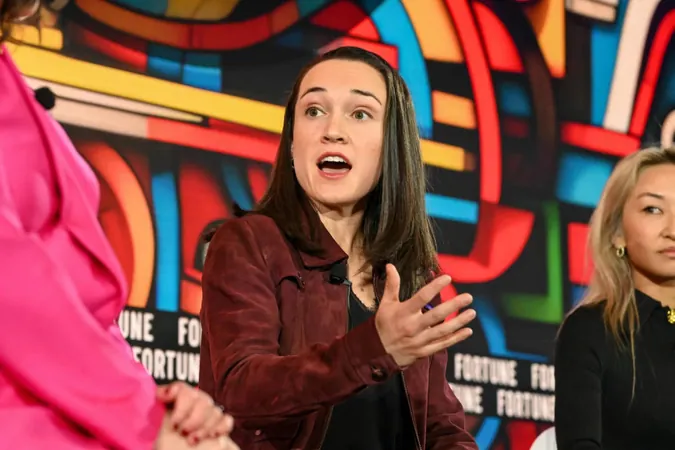
Why Kleiner Perkins Investor Leigh Marie Braswell Declares AI Agents “Don’t Work” Yet
2024-12-12
Author: Arjun
Introduction
As artificial intelligence "agents" capture the limelight, recent discussions at Fortune's Brainstorm AI conference revealed a stark skepticism among investors regarding their current capabilities.
Leigh Marie Braswell's Perspective
Leigh Marie Braswell, who recently became a part of Kleiner Perkins focusing on AI infrastructure and machine learning, made headlines with her bold statement: “agents don’t work”—at least for now. She emphasized that these systems fail to operate reliably for the vast majority of their intended applications.
The Example of Self-Driving Cars
Pointing to the example of self-driving cars, Braswell noted that while autonomous vehicles are already navigating our streets, they often still require human oversight or intervention. “Yes, agents can really speed you up,” she acknowledged, but stressed that “they require a human in the loop for basically all of the use cases.”
Concerns from Other Investors
Rebecca Kaden from Union Square Ventures echoed Braswell's concerns, highlighting that while AI agents may achieve consistency 80% or 90% of the time, the crucial last 5% poses significant challenges. “In any consumer deliverable, that last bit matters more than anything else,” she argued, suggesting that the journey to achieving full reliability is still a long way off.
Sarah Guo's Different Perspective
Sarah Guo, founder of the venture firm Conviction, offered a slightly different perspective, insisting that while she believes AI agents are functional, they are not yet capable of replacing jobs. “Most jobs are actually quite complicated,” she explained, pointing out the need for multiple evaluations and guardrails to make AI applicable in real-world scenarios. Guo also showcased advancements where businesses can create applications in natural language, launching fully functional software without developer assistance.
Optimism for the Future
Consensus among the panelists suggested optimism for the future; all three investors recognized that AI agents might eventually take over certain human jobs. However, as Kaden prudently stated, “We don’t really know how far away we are from that.”
Conclusion
As we continue to explore the potential of AI, it's clear that the innovative technology is still in its infancy. The votes are still out on how quickly we will get to a stage where AI agents are seamlessly integrated into the workforce, raising the burning question: Are we prepared for that transformation? Stay tuned as we keep a close eye on the developments in this exciting, yet complex, field!



 Brasil (PT)
Brasil (PT)
 Canada (EN)
Canada (EN)
 Chile (ES)
Chile (ES)
 España (ES)
España (ES)
 France (FR)
France (FR)
 Hong Kong (EN)
Hong Kong (EN)
 Italia (IT)
Italia (IT)
 日本 (JA)
日本 (JA)
 Magyarország (HU)
Magyarország (HU)
 Norge (NO)
Norge (NO)
 Polska (PL)
Polska (PL)
 Schweiz (DE)
Schweiz (DE)
 Singapore (EN)
Singapore (EN)
 Sverige (SV)
Sverige (SV)
 Suomi (FI)
Suomi (FI)
 Türkiye (TR)
Türkiye (TR)